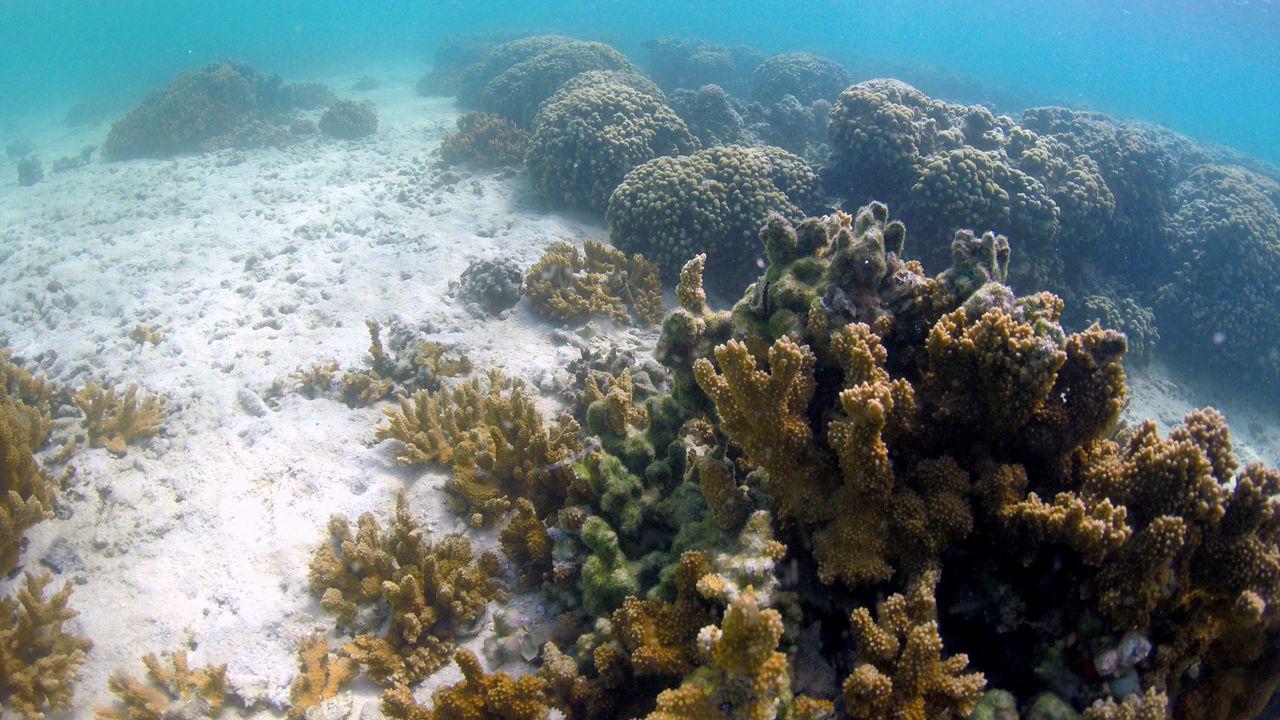HONOLULU (AP) — An environmental group has a $2 million insurance policy on Hawaii's coral reefs, which is in effect in time for a busier hurricane season that could damage the vital natural resources that are increasingly under threat from climate change.
In announcing the policy purchase last year, The Nature Conservancy said it was the first-ever coral reef insurance policy in the United States.
The policy, issued by insurance firm Munich Re, is triggered at windspeeds of 57 mph if sufficiently close to reefs and can provide payouts up to a maximum of $2 million to allow rapid reef repair and restoration after storm damage.
The warmer Pacific has forecasters expecting a “near-to-above normal” hurricane season from June to November for waters around Hawaii, according to the Central Pacific Hurricane Center. That amounts to four to seven tropical cyclones in the region, but fewer could actually come ashore in the islands.
The cost of the insurance policy is roughly $100,000, which was underwritten by private funders that included the Bank of America Charitable Foundation and Howden Group Foundation, the charitable arm of international insurance agency Howden Group Holdings, the Honolulu Star-Advertiser reported.
The effort follows the world’s first reef insurance policy for the coastal state of Quintana Roo in Mexico and another one covering the Mesoamerican Reef off southern Mexico, Belize, Guatemala and Honduras.
Coral reefs make up much of Hawaii’s nearshore ocean ecosystem and are critical to the state’s economy.
Hawaii’s reefs protect populated shorelines from massive ocean swells and storm surges from tropical storms — a benefit the U.S. Geological Survey valued at more than $860 million a year.
Adding tourism, fishing, cultural value and other factors, the state’s reefs are worth more than $33 billion, according to a National Oceanic and Atmospheric Administration-funded study.
“As a Native Hawaiian, I know the importance of coral reefs for us culturally, our genealogical connection to corals through our Kumulipo (creation chant),” said Makale‘a Ane, who leads community engagement and partnerships for The Nature Conservancy. “We live on an island, so it’s very important that we protect our reefs."



